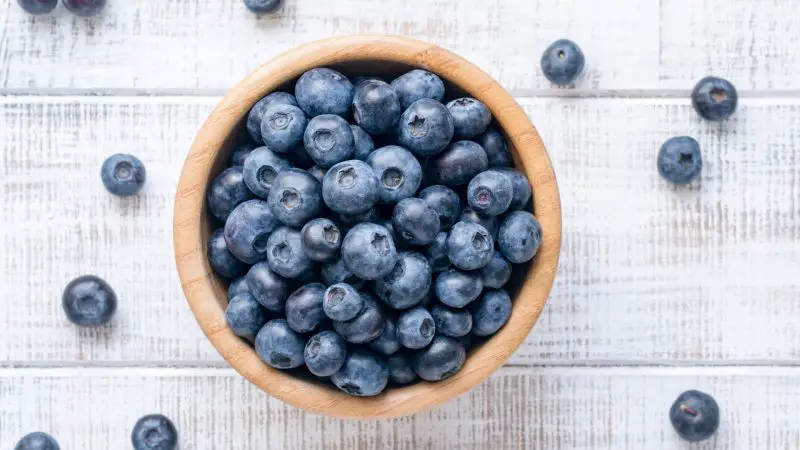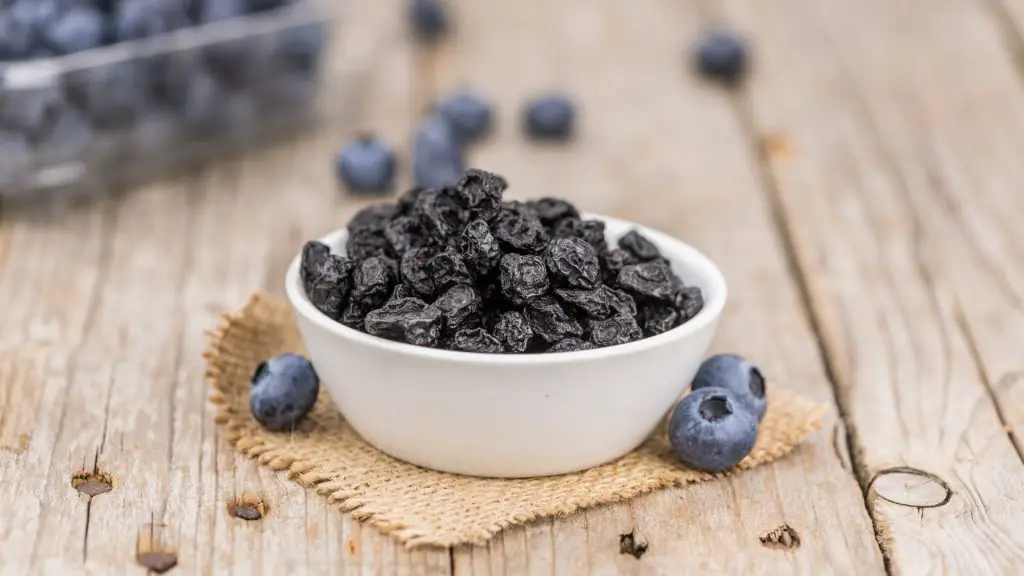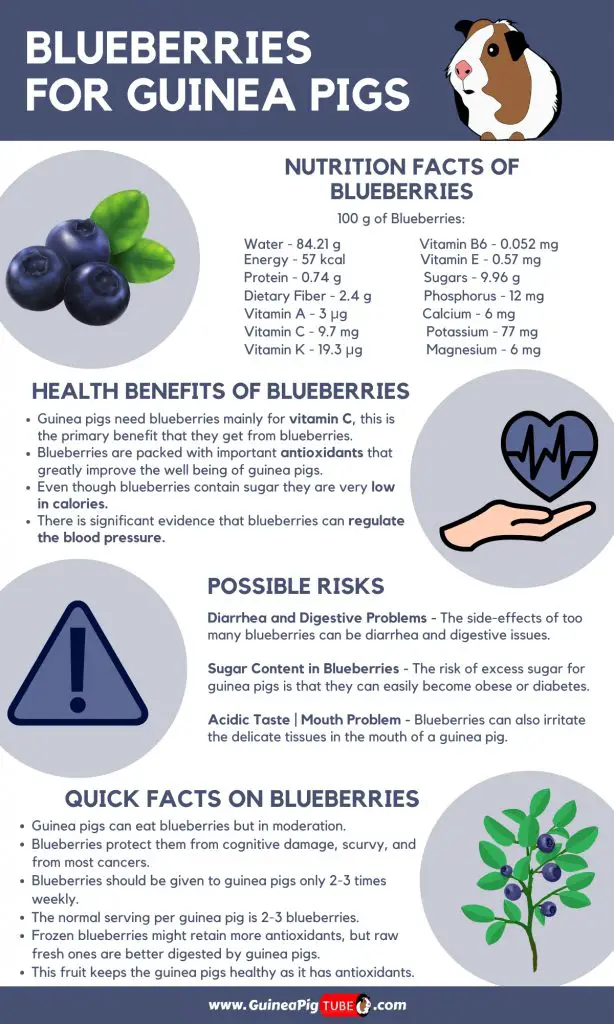Guinea pigs are one of the most adorable plant-eating pets on the planet. These rodents absolutely love almost all types of veggies and fruits. They find small berry-like fruits especially tasty. Now let’s take a closer look and see if guinea pigs can have blueberries in their diet.
Can guinea pigs eat blueberries? Guinea pigs can eat blueberries but only in moderation. Blueberries are healthy for the guinea pigs because they are rich in vitamin C and antioxidants. But due to the sugar level and acidity, they need to be regulated. For guinea pigs, blueberries should be given in small serving sizes and only twice a week.
Guinea pigs need vitamin C in their daily diet. Since they can’t synthesize or store this vitamin by themselves, they need to receive it through blueberries and other vitamin C-rich foods. In the following sections, you will find out if blueberries are safe for guinea pigs and everything related to blueberries and guinea pigs, including the risks, nutrition facts, serving size, and more. Let’s begin!
Table of Content
Are Blueberries Good for Guinea Pigs? | Health Benefits

There are numerous benefits that blueberries can give to guinea pigs. The following are just some of them:
Vitamin C and the Scurvy Prevention
Guinea pigs need blueberries mainly for vitamin C. This is the primary benefit that they get from blueberries. With vitamin C, guinea pigs can have a healthy mouth and teeth, good digestion, and more importantly, vitamin C prevents a disease called scurvy. This disease comes from vitamin C deficiency and can cause massive problems to guinea pigs.
The problem is that guinea pigs don’t make or synthesize this vitamin themselves, nor can they store it properly. This is why they need an external vitamin C source. So, if your cavy lacks vitamin C, treat it with blueberries but naturally in moderation.
Antioxidants and Improved Immune System
Blueberries are packed with important antioxidants that greatly improve the well-being of guinea pigs. Antioxidants protect guinea pigs from free radicals which cause aging and different diseases. The main antioxidants in blueberries are called anthocyanins. This antioxidant is responsible for the main health benefits of blueberries.
Low in Calories
Even though blueberries contain sugar, they are very low in calories. One positive thing is that guinea pigs will not consume caloric food which can cause them digestive problems. Their whole diet mainly consists of light and watery foods and it should stay like that for the most part.
On a side note, blueberries also have a lot of fiber which can be a double-edged sword as it can also improve digestion, and at the same time, too much of it causes constipation.
Blood Pressure Regulation
There is significant evidence that blueberries can regulate the blood pressure in humans, the same can be applied to guinea pigs as well. Blueberries, in general, are amazing fruit for heart-related conditions.
Nutrition Facts of Blueberries for Guinea Pigs

For 100 g of blueberries, these are the nutrition facts:
- Energy – 57 kcal
- Protein – 0.74 g
- Total lipid (fat) – 0.33 g
- Carbs – 14.49 g
- Dietary fiber – 2.4 g
- Sugars – 9.96 g
- Calcium – 6 mg
- Magnesium – 6 mg
- Phosphorus – 12 mg
- Potassium – 77 mg
- Vitamin C – 9.7 mg
- Vitamin B-6 – 0.052 mg
- Vitamin A – 3 µg
- Vitamin E – 0.57 mg
- Vitamin K – 19.3 µg
- Folate – 6 µg
- Lutein + zeaxanthin – 80 µg
Are Blueberries Bad for Guinea Pigs? | Possible Risks

You need to remember that even though blueberries are healthy for you, they might be too much for the guinea pig. They have vitamin C, antioxidants, and many other benefits. But in large serving sizes, the amount of sugar in this fruit comes with some risks for guinea pigs.
You can avoid most health issues from blueberries if you serve them sparingly and only two times a week. Now let’s dive deeper into the potential risks for guinea pigs.
Diarrhea and Digestive Problems
The side-effects of too many blueberries can be diarrhea and digestive issues. Guinea pigs are very adorable and they can convince you to give them almost a handful of blueberries. You have to learn to say no to your pet. Just imagine how bad their tummy would be after too many blueberries before you give them any more of them.
Due to a lot of fiber in them, serious problems can arise in their intestines. Not just the intestines, but the overall digestion will be more sensitive. The guinea pig will have gasses and bloating, or even belly pains and discomfort.
Sugar Content in Blueberries
If the guinea pig consumes too many blueberries or too often, they will ingest too much sugar as well. The risk of excess sugar for guinea pigs is that they can easily become obese, develop different digestion complications, and risk of getting diabetes.
Acidic Taste | Mouth Problems
Blueberries can also irritate the delicate tissues in the mouth of a guinea pig. The oral health of guinea pigs is already fragile as it is. Their mouth might get sore from too many blueberries and this is why that type of food needs to be used sparingly.
Serving Size and Frequency of Blueberries for Guinea Pigs

Considering the risks above, it is important to know are guinea pigs allowed to eat blueberries every day or in what amounts can you feed blueberries to guinea pigs. We will answer all of these questions and more in the following sections below.
Can Guinea Pigs Have Blueberries Every Day?
Guinea pigs can’t eat blueberries every day because of the sugar content in them which can be harmful to guinea pigs’ health. You probably have thought since guinea pigs are herbivores, they can eat most fruits almost every day. This is certainly not true as fruits cannot be consumed by guinea pigs every day even though they are healthy and nutritious for humans.
For guinea pigs, any fruit with a high amount of sugar is not recommended to be in their diet very often. Twice per week should be even more than enough. After all, there are other fruits and vegetables with vitamins and minerals for guinea pigs as well. Having a variety in their diet will positively impact their overall well-being.
How Many Blueberries Can a Guinea Pig Eat a Day?

When you feed guinea pigs blueberries, it’s important to know how many of them is enough. The trick with blueberries is that they have a lot of vitamin C that cavies need, but on the other hand they also have a lot of sugar and this makes things a little bit complicated.
So, blueberries may be healthy and tasty, but the guinea pig is not supposed to have more than 2 to 3 whole blueberries in one day. First of all, the acidity in blueberries may cause soreness in the mouth of a guinea pig. So, 2 to 3 small blueberries are more than enough.
Do Guinea Pigs Like Blueberries?
Guinea pigs are not just confined to eating veggies and special snacks or foods intended for them. They also love fruits, especially those small and mouth-watering fruits like most berries. Guinea pigs absolutely like blueberries and they enjoy eating them. They like all types of berries, such as strawberries, blackberries, raspberries, and grapes.
Can Baby Guinea Pigs Eat Blueberries?
During the first few weeks of their life, guinea pigs need a special diet that consists of mother milk, good quality hay (especially alfalfa hay), water, and pellets. So, during that period baby guinea pigs shouldn’t eat blueberries.
After that period you can introduce blueberries and other fruits and vegetables to them. It’s important to remember that if you are planning to give your guinea pig blueberries for the first time, do it slowly and gradually.
More Information About Guinea Pigs and Blueberries
Can Guinea Pigs Eat Frozen Blueberries?

Guinea pigs can eat frozen blueberries if they are defrosted at room temperature beforehand and if they weren’t processed before freezing. On the other hand, fresh blueberries are better because frozen foods that were processed are not good for the digestive system of guinea pigs.
Can Guinea Pigs Eat Blueberry Branches?
Guinea pigs can eat blueberry branches and they are even good for their teeth. As we know, guinea pig’s teeth continuously grow and blueberry branches can help them stay healthy. Guinea pigs will enjoy chewing on blueberry branches. But before giving them these branches, you need to prepare them for your guinea pigs.
Be sure to wash them with water and remove any dirt or dead leaves. Also, guinea pigs will use blueberry branches as a toy. Sometimes, they love to play with branches more than actually chew on them.
Can Guinea Pigs Eat Blueberry Leaves?

Guinea pigs can eat blueberry leaves, but only in moderation just like berries. Blueberry leaves have more antioxidants than blueberries and the amount of sugar is also lower. This means that they will have even more health benefits for guinea pigs. Also, guinea pigs enjoy eating any leafy vegetable and these leaves will be a treat for them.
Can Guinea Pigs Eat Blueberry Muffins?
Guinea pigs can’t eat blueberry muffins because they have a sensitive digestive system and they can’t eat any cooked food. Their digestive system isn’t made to process any cooked food and you should avoid feeding them these types of food. So, blueberry muffins are very dangerous for guinea pigs and should be avoided at all costs. Guinea pigs should eat only fresh blueberries.
Can Guinea Pigs Eat Dried Blueberries?

Guinea pigs shouldn’t eat dried blueberries, because dried blueberries have even more sugar than raw blueberries. This might present an even bigger health risk, sugar-wise. Also, dried blueberries can contain some additives that you need to avoid in the guinea pig’s diet.
Some people will say that dried blueberries aren’t so bad for guinea pigs. But we don’t recommend implementing them or any other dried fruit such as dried apricots or dried bananas in their diet.
Quick Facts on Blueberries
The following facts about blueberries will amaze you:
- Guinea pigs can eat blueberries but in moderation.
- Blueberries are full of vitamin C, but they also contain sugar which is bad for guinea pigs.
- This fruit keeps the guinea pigs healthy as it has antioxidants.
- Blueberries protect them from cognitive damage, scurvy, and from most cancers.
- Excess blueberries can cause sores around or in the mouth, gasses, diarrhea, and an upset belly.
- Blueberries should be given to guinea pigs only 2-3 times weekly.
- The normal serving per guinea pig is 2-3 blueberries.
- Frozen blueberries might retain more antioxidants, but raw fresh ones are better digested by guinea pigs.
- Guinea pigs can develop diabetes as well, and excess sugary fruits might increase that risk.

With food, you should be careful what to choose. If you are not sure what to feed them but believe your little piggies deserve some great treats, check our Helpful Guide to the Best Guinea Pig Treats to get some ideas.
We have also made a full list of foods that guinea pigs can and can’t eat (150+ Types of Foods). Be sure to also check our recommended products page for everything you will ever need to assure a happy life for your guinea pigs. Hope this information was helpful and you have found the answer you were looking for.
List of Sources
Vitamin C Requirements of the Guinea-Pig
Recent Research on the Health Benefits of Blueberries and Their Anthocyanins
Bioactive Compounds and Antioxidant Activity in Different Types of Berries
